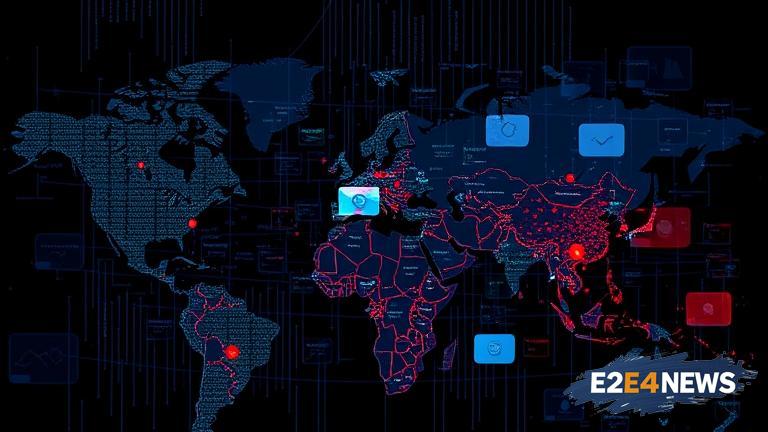The threat of nation-state cyber attacks has become a pressing concern for the US government, with recent attacks on critical infrastructure and government agencies underscoring the need for a federal cyber security role. Nation-state threats are highly sophisticated and well-funded, making them a significant challenge for even the most advanced cyber security systems. The US government has been slow to respond to these threats, with a lack of clear policies and procedures in place to prevent and respond to nation-state cyber attacks. However, there is a growing recognition of the need for a federal cyber security role to coordinate and lead the response to these threats. A federal cyber security role would provide a centralized authority to oversee and coordinate cyber security efforts across the government, as well as provide support and resources to state and local governments. This would help to ensure that the US is better equipped to prevent and respond to nation-state cyber attacks. The importance of a federal cyber security role was highlighted by the recent SolarWinds hack, which was attributed to Russian nation-state actors. The hack, which affected multiple government agencies and private sector companies, demonstrated the devastating impact that nation-state cyber attacks can have. The US government has taken steps to respond to the hack, including the establishment of a cyber security task force to investigate and respond to the attack. However, more needs to be done to prevent similar attacks in the future. A federal cyber security role would provide the necessary authority and resources to take a proactive approach to cyber security, rather than simply responding to attacks after they have occurred. This would involve working with state and local governments, as well as private sector companies, to identify and mitigate cyber security risks. It would also involve developing and implementing policies and procedures to prevent and respond to nation-state cyber attacks. The US government has a number of options for establishing a federal cyber security role, including the creation of a new federal agency or the expansion of existing agencies. Whatever approach is taken, it is clear that a federal cyber security role is necessary to protect the US from the growing threat of nation-state cyber attacks. The threat of nation-state cyber attacks is not limited to the US, with countries around the world facing similar challenges. However, the US is uniquely vulnerable to these threats due to its reliance on digital technologies and its position as a global leader. As such, it is essential that the US takes a proactive approach to cyber security, including the establishment of a federal cyber security role. The benefits of a federal cyber security role would be numerous, including improved coordination and communication between government agencies and private sector companies. It would also provide a centralized authority to oversee and coordinate cyber security efforts, helping to ensure that the US is better equipped to prevent and respond to nation-state cyber attacks. Furthermore, a federal cyber security role would help to promote a culture of cyber security awareness and best practices, both within the government and the private sector. This would involve providing training and resources to help individuals and organizations to protect themselves from cyber threats. In addition, a federal cyber security role would help to support the development of new cyber security technologies and strategies, including the use of artificial intelligence and machine learning to detect and respond to cyber threats. The establishment of a federal cyber security role would also help to improve the US’s international relationships, particularly with countries that are also facing similar cyber security challenges. By working together, countries can share best practices and coordinate their responses to nation-state cyber attacks, helping to improve global cyber security. In conclusion, the threat of nation-state cyber attacks highlights the need for a federal cyber security role to protect the US from devastating cyber attacks. A federal cyber security role would provide a centralized authority to oversee and coordinate cyber security efforts, as well as provide support and resources to state and local governments. It would also help to promote a culture of cyber security awareness and best practices, and support the development of new cyber security technologies and strategies. The benefits of a federal cyber security role would be numerous, and it is essential that the US takes a proactive approach to cyber security to protect itself from the growing threat of nation-state cyber attacks.
